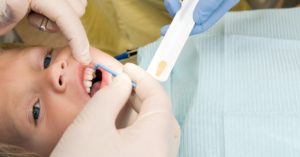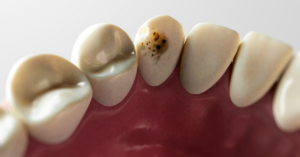The Importance of Regular Dental Checkups for Children: A Guide for Parents
First mouth check by age 2
All children should have a introductory mouth check by the time they turn two.
This check might be done by an oral health professional, similar as an oral health therapist, dentist, dental therapist or dental hygienist.
It might also be done by another health professional, similar as a motherly and child health nanny , croaker
or practice nanny . These professionals will relate your child to an oral health professional if necessary.
Regular dental check- ups are important for children
Dental checks are important because
- the early signs of tooth decay and other problems can fluently be missed by families
- small problems can be treated before they come larger problems
- they give you a chance to ask questions or talk about any enterprises you may have
- your oral health professional can help your child avoid decay with treatments similar as fluoride operation and dental sealants
- children get to know the dental staff and come familiar with the process of visiting the dentist.
- Everyone has different oral health requirements and threat situations that determine how frequently they should have a check- up. Talk with your oral health professional about how frequently your child needs a check- up.
For further information about the types of dental services available, see Seeing a dentist or dental health guru
Tips for positive dental visits
Then are some ways you can help make your child’s visit to the dentist a positive one
- Prepare your child for what to anticipate by reading story books about visits to the dentist or by ‘ playing dentist ’ at home.
- Take your child with you when you have a check- up so that they can see what happens.
- Talk about dental visits being a part of their regular routine that helps to keep them healthy. punctuate the new, intriguing, and delightful aspects of visiting the dental clinic.
- Make dental movables beforehand in the day so your child isn’t tired.
- Arrive a little before the appointment time to let your child come familiar with the new surroundings.
- During the dental visit, let the oral health professional have your child’s full attention. They’re trained to be gentle and make your child feel comfortable during the check- up.
- Combine the dental visit with a fun exertion latterly like a trip to the demesne or having a friend over to play.
- Make sure you only say positive effects about your dental gests in front of children.
The Child Dental Benefits record
The Commonwealth Child Dental Benefits Schedule( CDBS) covers some or all of the cost of introductory dental treatments over a two time period for eligible children.
A child is eligible if they’re aged 0 – 17 times, are eligible for Medicare and you admit Family Tax Benefit Part A or another applicable USA Government payment.
Keeping children’s teeth healthy
You can help to keep your child’s teeth healthy by
- drawing your baby’s teeth as soon as they appear( generally around 6 months of age) using a soft cloth or a soft toothbrush and water.
- From 18 months of age, start using a pea- sized quantum of low- fluoride toothpaste to encounter your child’s teeth. Encourage your child to spear out toothpaste after brushing, but not wash.
- Helping your child to encounter their teeth doubly a day – in the morning after breakfast and before bed at night. Do this until they’re about seven or eight times old to make sure every face gets gutted well.
- Offering a wide variety of nutritional foods and have healthy snacks on hand.
- Avoiding or limiting sticky foods and drinks( including lollies, chocolate, sweet biscuits, soft drinks, fruit juice and flavoured milk), especially between refections.
- Offering valve water regularly. utmost of Victoria’s valve water has fluoride in it, which is good for teeth and safe to drink.




